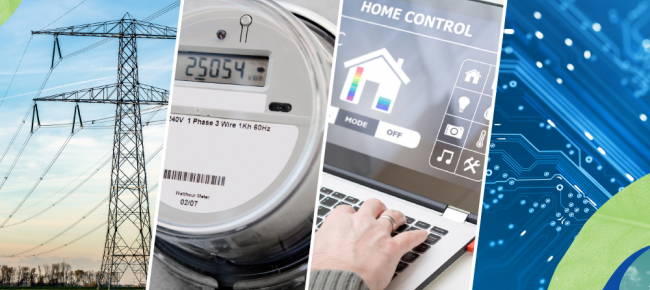Заголовок
Commission sets out actions to digitalise the energy sector to improve efficiency and renewables integrationCreated date
23 10 2022The European Green Deal and the REPowerEU Plan require a deep transformation of our energy system, which needs to become more interactive and smarter to help consumers embrace the benefits of the green transition. Today, the Commission is presenting an Action Plan highlighting how new technologies can help improve the efficient use of energy resources, facilitate the integration of renewables into the grid, and save costs for EU consumers and energy companies. The Commission is setting out actions to boost data sharing, promote investments in digital electricity infrastructure, ensure benefits for consumers and strengthen cybersecurity. With data centres and the growing appetite for online services demanding ever more resources from our energy system, today's plan also outlines ways to decouple the energy footprint of the ICT sector from the exponential growth of data. The green and digital transition must go hand in hand.
Commissioner for Energy Kadri Simson said: “The European Green Deal and making Europe Fit for the Digital Age are two central priorities of this Commission and go hand in hand. The aim is to make our energy system more efficient and ready for increasing share of renewable energy sources. For this, we need more innovative digital solutions and a grid that is much smarter and more interactive than it is today. Today's Action Plan will help unlock the potential of digitalising the energy sector and the important energy savings that this can provide, benefitting all consumers.”
Key actions to digitalise the energy system
In some areas of the energy sector, such as electric vehicles, photovoltaic installations and heat pumps, digital and smart technologies are already in place and need support to scale up. In other areas our energy system is just beginning to reap the benefits of digitalisation. In the coming months and years, the Commission intends to take various steps to boost digital energy services while ensuring an energy-efficient ICT sector, including:
- helping consumers increase control over their energy use and bills through new digital tools and services, with a strong governance framework for a common European energy data space;
- controlling the energy consumption of the ICT sector including through an environmental labelling scheme for data centres, an energy label for computers, measures to increase transparency on the energy consumption of telecommunication services and an energy efficiency label for blockchains;
- strengthening the cybersecurity of energy networks through new legislation including a Network Code for cybersecurity aspects of cross-border electricity flows under the EU Electricity Regulation and Council Recommendation to improve the resilience of critical infrastructures.
The Commission will keep providing financial support for R&I and boost the uptake of digital technologies in the energy sector through the Digital Europe Programme, LIFE, cohesion funds and a flagship programme for Digitalisation of Energy under Horizon Europe. In cooperation with the European Green Digital Coalition , it will also continue developing tools and methodologies to measure the net environmental and climate impact of enabling digital technologies in the energy sector.
Background
As part of the European Green Deal, the Commission presented an EU Strategy for Energy System Integration on 8 July 2020, where it committed to adopt a Digitalisation of Energy Action Plan to develop a competitive market for digital energy services that ensures data privacy and sovereignty, and supports investments in digital energy infrastructure.
The Russian invasion of Ukraine and current high energy prices have increased the need for the EU to achieve its independence from Russian fossil fuel imports and its strategic sovereignty and security, which can be boosted by the creation of a digital energy system. Increasing the digitalisation of the EU's energy system is also essential to achieve the EU's 2030 and 2050 climate targets in a cost-effective way.
Resource: https://ec.europa.eu/commission/presscorner/detail/en/ip_22_6228















